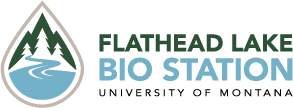Please Join Us at the 2025 PSPP Annual Meeting!
Flathead Lake Biological Station | October 28–30, 2025
We are thrilled to welcome you to this year’s Montana Pesticide Stewardship Partnership (PSPP) Annual Meeting —a gathering of partners, scientists, educators, and community members dedicated to protecting Montana’s waters through collaboration, science, and stewardship. More details—including registration, a full agenda, and logistics—will be shared soon. In the meantime, please email Janelle with any questions- Janelle.Groff@flbs.umt.edu
Public Seminar – Open to All!
Tuesday, October 28 | 6:30 PM
Join us for an engaging evening of science, stories, and ideas for action that can help protect Montana’s waters. Come learn more about pesticides (insecticides, herbicides, fungicides, etc.), non point source pollution, and actions to improve water quality. The seminar will be followed by light refreshments and meaningful conversations with fellow attendees.
PSPP Partners & Subawardees
October 28–30
All PSPP partners and subawardees are invited to participate in the full three-day meeting. Highlights include: updates from across the partnership, collaborative discussions and networking opportunities, deep dives into monitoring data and considerations for next field season, in-depth discussions on emerging topics and research, and more! Please email Janelle Groff if you are interested or have any questions: janelle.groff@flbs.umt.edu
Partners & Subawardees Register Here:
https://flbs.umt.edu/reservations
*Please only choose Sponsored Participant if you have been instructed to do so by a PSPP team member
At the end of October, the PSPP hosted their 2024 Annual Meeting at the Flathead Lake Biological Station to share program updates and lead discussions that will shape future initiatives. The event brought together a wonderful variety of people to discuss and advance PSPP efforts. Below are some highlights from the meeting
Day 1:
The conference kicked off with a welcome session and opportunity for attendees to connect.
Dr. Rachel Malison, PSPP Principal Investigator, provided opening remarks, outlining our Annual Meeting goals and agenda. Attendees introduced themselves, setting the stage for networking and conversations throughout the three days.
An overview of the PSPP was presented, highlighting current status and progress. PSPP subaward recipients shared their work, including the City of Missoula, Confederated Salish and Kootenai Tribes, Montana Department of Environmental Quality, Kootenai Tribe of Idaho, Montana Department of Agriculture, Montana State University Extension, and Montana Watershed Coordination Council.
Day 2:
Dr. Cecil Tharp, Montana State University, led a session on pesticide use, pathways, toxicity, persistence, and more, providing valuable insights to pesticide impacts and complexities.
Janelle Groff, PSPP Research Coordinator, reviewed the Quality Assurance Project Plan (QAPP), which is now partially approved by the EPA- a crucial step before sample collection efforts can begin.
Diane Whited, Flathead Lake Biological Station, presented a detailed overview of the site selection framework for the PSPP Monitoring Plan. This session encouraged feedback and questions, leading to productive conversation as Diane shared her work with spatial data and considerations for weighing risk among various land use types.
A key discussion focused on identifying the audiences PSPP aims to reach, how to best engage them, and how to build relationships. These insights will guide our future outreach and education efforts.
Janelle Groff reviewed details for Competitive Contracts, outlining guidelines for application and support. Attendees brainstormed ideas to be supported by contracts as well as naming organizations that are likely to have interest in this opportunity.
Dr. Rachel Malison presented on linking research to real-world impacts. She shared about research completed by intern, Chris Hyder, at the USGS Lab in Helena. Using mesocosms, they studied the impact of fungicides on algae. This research will hopefully expand to macroinvertebrates in the future.
Attendees contributed to interactive brainstorming boards on various topics, generating ideas and insights.
Day 3:
Tiffany Lyden, Montana DEQ, and Amy Seaman, MWCC, presented on education and outreach relevant to PSPP. They highlighted effective strategies, messaging, and audience engagement. Discussions focused on creating uniform messaging across all efforts.
The ideas posted on the brainstorm boards were reviewed and further discussed, providing a great way to conclude the Annual Meeting and revisit key takeaways.
We are grateful to everyone who attended and contributed to the success of this conference. Your insights and collaboration are invaluable as we continue to advance the PSPP.

